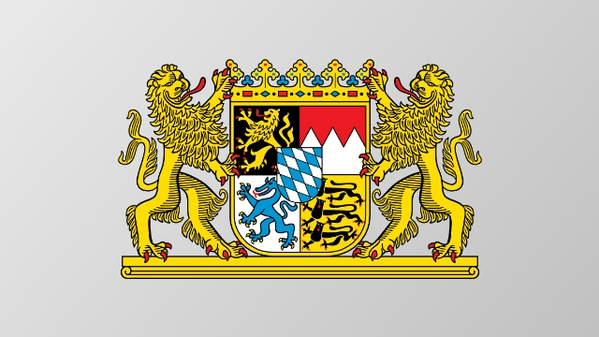
16/03/2023
The latest IT for Upper Bavaria
GOVERNMENT WITH NEW IT SERVICE MANAGEMENT SYSTEM (ITSM)
Upper Bavaria. Many people immediately think of lederhosen and dirndls, meadows and cows, mountains on the horizon and perhaps also of Munich with its Oktoberfest. But even though traditions are cultivated in Upper Bavaria, things are happening in terms of modernisation at the same time.
The government has now implemented a new IT service management system (ITSM) that has made work in the offices much easier.
The administrative district of Upper Bavaria has existed in its present form since 1972. More than 4.7 million people live here in an area of around 17,500 km² - a population and size that can be roughly compared to Kuwait. The administrative district consists of 20 administrative districts and the three independent cities of Munich, Ingolstadt and Rosenheim. Almost 2,500 employees work for the Upper Bavarian government, which is based in Munich. The government employees look after more than 33,000 employees in subordinate departments. A reliable IT system is indispensable. That is why the tradition-rich Upper Bavaria has just undergone an upgrade.
Since the turn of the millennium, the government of Upper Bavaria had relied on a self-developed software that worked on an Intrexx basis. Or not: over time, the administrative tasks increased, employees also had to take care of reception facilities for refugees, for example. The previous solution was less and less able to meet the requirements. In 2018, the IT managers started looking for a modern replacement.
Time for a change
After various solutions had been shortlisted and examined more closely, the project managers finally decided on the ITSM system KIX from the Chemnitz-based company cape IT.
There was quick agreement on what the new system should be able to do, reports IT expert Philip Horsch from the 'Digitalisation and IT' staff unit:

"A fundamental criterion for us was that the new system follows the principles of ITSM so that we can advance the standardisation of our work processes. In particular, so that new colleagues can familiarise themselves with the system in the shortest possible time and there are no interruptions when employees leave.
We also needed the possibility to combine ticketing, asset management and customer management. And the long-term support and assistance from an external partner were also important points for us."
A Bavarian-Saxon success story
Since its implementation in winter 2019, KIX has been used to varying degrees by all employees of the Upper Bavarian government for ITSM and internal applications within the authority. For the majority of employees, it is primarily a practical tool for making service requests, for example in the case of defective hardware. They can use the KIX Self Service portal for this. In addition, the solution is the virtual contact point for all IT-related questions and problems.
For the 40 or so employees in the IT department, KIX has become an indispensable part of their daily work. They now exclusively use the open source software from Chemnitz for various smaller projects. They also use KIX for asset management - more than 18,000 assets are already in the database of the Upper Bavarian government. The IT team uses it to manage all staff laptops, and it is also possible to apply for special hardware or software and other IT equipment - completely digitally and paperless. The server infrastructure for this is provided by the State Office for Digital Affairs, Broadband and Surveying (LDBV), and the current update statuses are transmitted to KIX via a Baramundi interface.
For ticket requests, the IT staff have come up with a system of small steps, explains Philip Horsch:
"From initially small, simple forms, we worked our way up to more differentiated requests. This way, all employees had roughly the same learning curve, we were able to constantly gather feedback and adapt and optimise the system based on experience."
He and his colleagues process about 2,000 tickets per month.
The work of the department heads has also been made much easier by the new system. For example, they can process home office applications almost completely digitally, although this was not planned at all before the implementation. Through specially assigned rights, they can approve an application with a virtual signature. Not only have the processes become much faster, but paper consumption has also been further reduced - in such a case, for example, only one printed sheet is needed in the personnel file.
Conclusion
The new system benefits not only the employees, but ultimately also the citizens of Upper Bavaria. Thanks to more effective workflows and the minimisation of problem cases, requests can now be processed more quickly.
Philip Horsch is enthusiastic:
"Sometimes it is almost scary what we can do with KIX. The system not only helps our long-serving staff, but it should soon also make it easier for new colleagues to get started. From the job interview to the handover of the equipment, we want to accompany them with KIX and maybe even take away some of their nervousness."
The Government of Upper Bavaria would therefore also like to rely on the system in the future:
"We were able to standardise our work processes, professionalise our asset management and make the ticket system simpler and more comprehensible. But we have not yet reached the end of this process. We continue to work on improving our workflows, and KIX is exactly the right tool for this," says Philip Horsch.